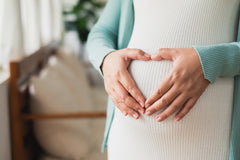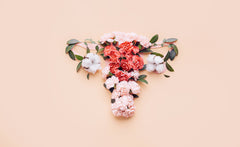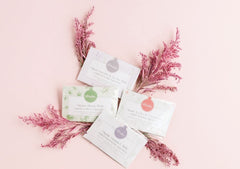Your anxiety level increases as you find yourself squirming in your seat, not knowing how to relieve that pesky itchiness in your nether regions without causing a major scene. Distraction and frustration can feel all-consuming and overwhelming.
For better or worse, you are not alone. One in three women experience vaginal irritation at some point in their lives. Thankfully there are ways to get your female parts back on track so you can concentrate on something else besides the aggravating itch.
What Is Vaginal Irritation?
Most vaginal itching is not a cause for major concern, but it sure can cause a lot of discomfort. The vagina and the vulva (labia, clitoris, and vaginal opening) make up a very sensitive area of a woman's body.
Some women might experience brief episodes of itchiness that resolve on their own. It is only a cause for concern if it is severe, persists, is recurring, or is accompanied by discharge.
Several possible culprits for an itching vagina include yeast infections, sexually transmitted infections, and irritation from clothing or menstrual pads. Yeast infections are more common in younger women, whereas aging women can experience vaginal dryness and itching due to decreasing estrogen levels.
Vaginal PH
Maintaining vaginal PH levels is equal to maintaining vaginal health. The normal vaginal PH level is between 3.8 and 5. Where you fall in this normal range is dependent on age.
Women of reproductive age have a normal range between 4 and 4.5, whereas women who have not yet started menstruating and postmenopausal women are more likely to fall somewhere about 4.5.
The higher the PH level, the more perfect the environment is for unhealthy bacteria to grow. Factors that can affect the vaginal PH level include unprotected sex, douching, antibiotics, and menstrual periods.
Unprotected Sex
Semen is alkaline, which means if you skip the condom, the release of semen can lower vaginal PH and encourage the growth of certain bacteria.
Douching
Some women choose to wash out their vaginas with a mixture of water and vinegar, baking soda, or iodine. This is not advised, as it increases the vaginal PH level and the growth of harmful bacteria overall.
Antibiotics
Sometimes antibiotics are necessary, but try not to overuse them. They kill not only the bad bacteria but also the good bacteria needed to maintain a healthy PH level.
Menstrual Periods
Menstrual blood raises the PH in the vagina. When the blood flows and is absorbed by a tampon or menstrual pad and sits in place, it can eventually cause an itching vagina.
How to Get Relief
You can take many steps to prevent vaginal itchiness from the get-go. Avoid scented pads, toilet paper, creams, douches, sprays, and bubble baths.
Instead of using menstrual pads, consider using a menstrual cup. This keeps the blood from resting right against your sensitive parts.
Support vaginal health with probiotics, which benefit your gut and your vaginal biome. You can eat foods that contain probiotics, such as yogurt, or take a supplement.
Because vaginal dryness can cause itchiness, the use of a vaginal moisturizer is helpful. These vaginal melts are an excellent way to support and restore vaginal moisture and relieve the itch.
Femallay Tea Tree & Coconut Hygiene and Cleansing Suppository Melts were specifically designed as the alternative natural treatment solution to fight BV and yeast infections.
These natural cleansing tea tree suppositories for feminine wellness are made from premium botanical ingredients including naturally anti-bacterial and 100% pure organic tea tree essential oil and unrefined raw coconut oil. These suppositories provide natural relief from itching, burning sensations, odor and other symptoms associated with bacterial vaginosis and yeast infections.
Beat the Itch
By better understanding the makeup of your sensitive parts and realizing the importance of maintaining vaginal health, you can stay on top of the itch and quickly find the relief you need.
Don't let vaginal irritation rule your life. Check out our entire line of feminine wellness products today!







